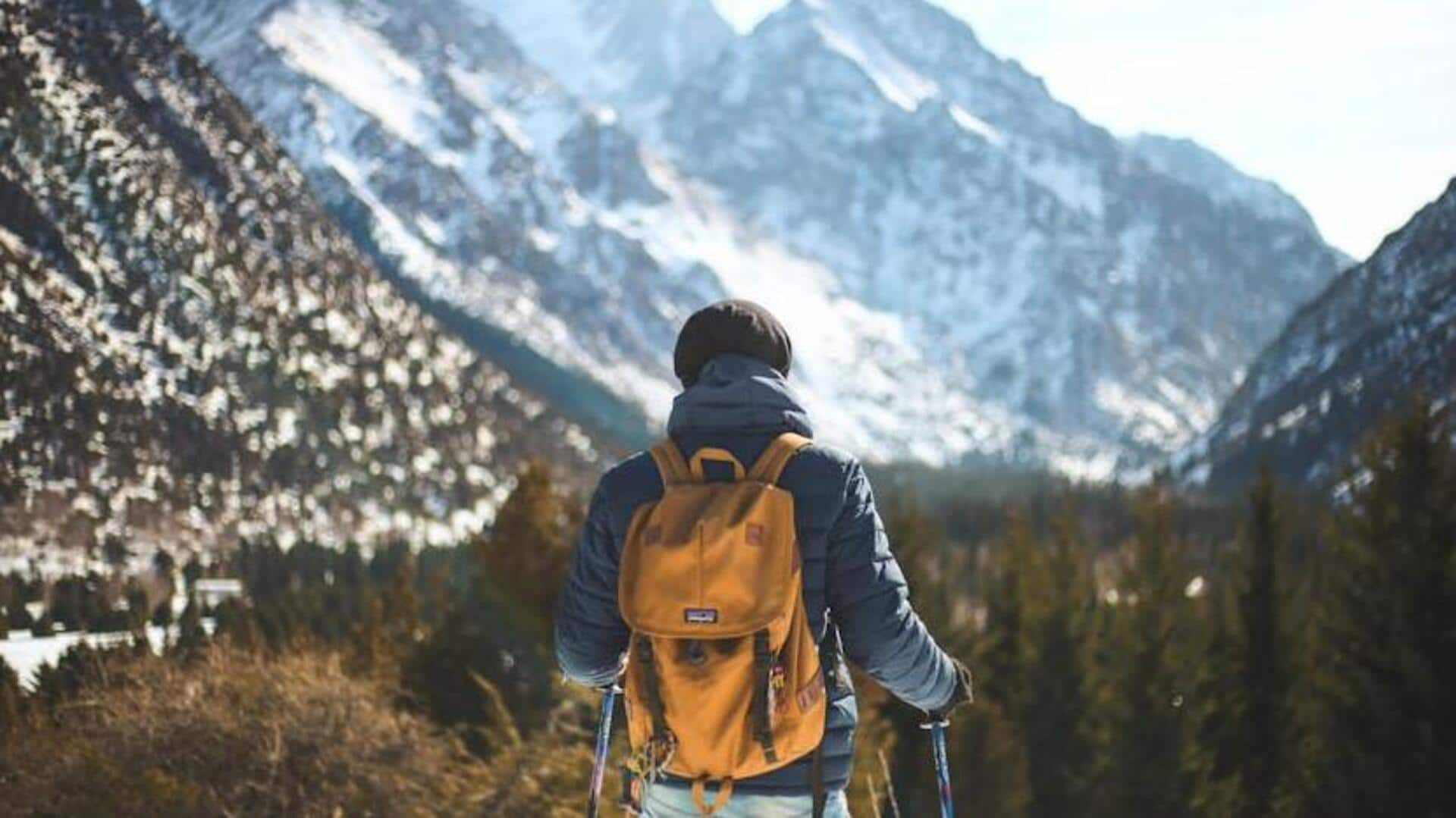
Etiquette for group hiking trips
What's the story
Group hiking trips are a fantastic way to experience the beauty of nature while building friendships and a sense of community.
However, to guarantee a positive experience for all participants, it's important to follow some basic rules of etiquette.
This article provides key tips for joining group hiking trips, with a focus on fostering respect, safety, and enjoyment for all hikers.
Planning
Plan and prepare together
Before a group hike, it's important to include everyone in the planning process.
This involves choosing the trail, evaluating its difficulty, and confirming everyone's physical fitness for it.
Arrangements for transportation and meals should also be discussed. By planning together, you ensure no one is left out and the trip is suitable for everyone's needs and abilities.
Camaraderie
Stay together and support each other
On the trail, it's important to set a pace that everyone in the group can handle.
Don't ditch your friends or set a blistering pace that leaves them struggling to keep up.
If someone is having a hard time, be supportive and suggest taking breaks when needed.
Sticking together not only keeps everyone safe but also makes the whole experience more enjoyable by fostering a sense of camaraderie.
Conservation
Respect nature and leave no trace
When hiking in natural settings, it's crucial to practice "leave no trace" principles.
This means staying on marked trails to prevent trampling plants and ensuring you pack out any trash you bring in.
Also, respect wildlife by observing from a distance and refraining from feeding or disturbing animals.
Adhering to these guidelines ensures the beauty of nature is preserved for future visitors.
Teamwork
Share responsibilities equally
A well-functioning hiking group operates like a team, with everyone sharing responsibilities.
This means splitting up tasks like navigating, cooking meals if you're on a multi-day hike, and setting up communal gear like tents or first aid kits during rest stops or at camp.
Dividing up the work not only makes things easier for everyone, but also helps build a sense of teamwork and trust.
Communication
Communicate openly and respectfully
Clear communication is key on group hikes.
Speak up assertively and respectfully if you have concerns or needs—whether it's about feeling rushed, uncomfortable with the terrain, or uneasy about a particular activity planned during the hike.
Listen actively and show understanding when others voice their needs.
This way, decisions are made with everyone's input, fostering a sense of inclusivity and care for each other's well-being.